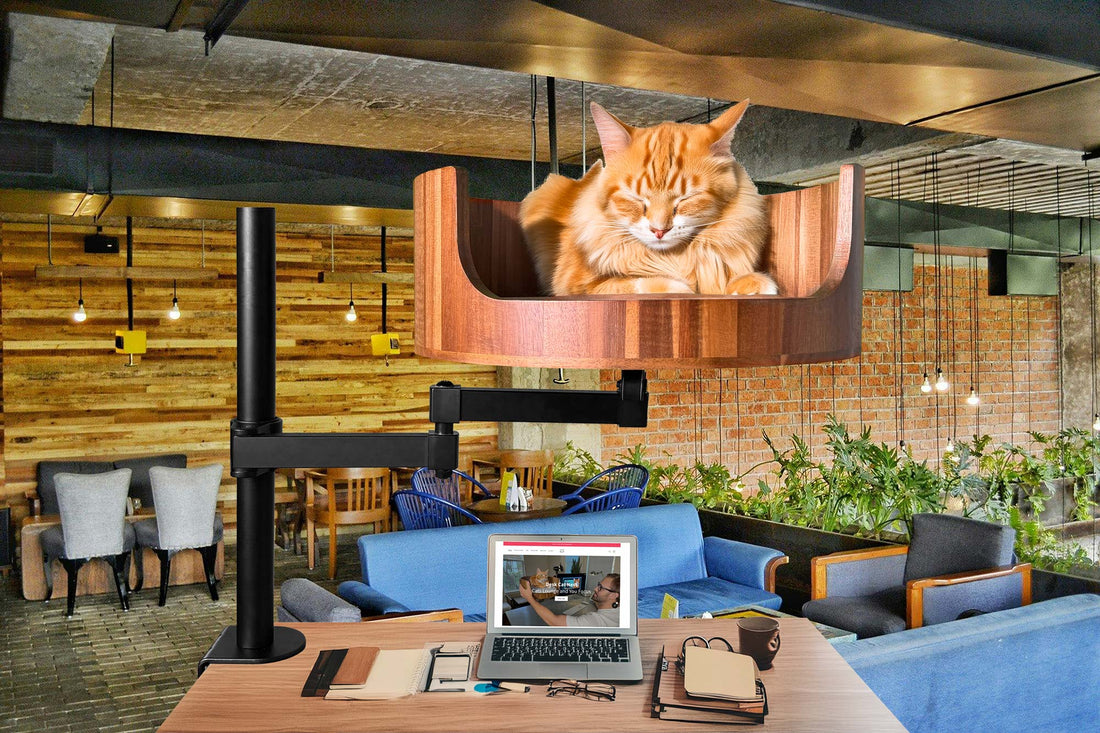
What Causes a Cat to Vomit After Eating: Key Insights
Share
Have you ever noticed your feline friend expelling their recently enjoyed meal shortly after eating? If so, you're not alone. Cats vomiting after meals is a common occurrence that can leave many pet owners puzzled and concerned. In this article, we will delve into the various factors that can cause a cat to vomit after eating, providing key insights into this peculiar behavior.
From dietary issues to underlying health conditions, there are a multitude of reasons why a cat may vomit after consuming food. Understanding these triggers is crucial in ensuring the health and well-being of your furry companion. With the help of veterinary experts and research studies, we will explore the possible causes of feline vomiting after meals and offer practical tips on how to address and prevent this issue. Stay tuned as we unravel the mystery behind why cats vomit after eating, shedding light on this common yet often perplexing behavior.
1. Cats may vomit after eating due to eating too quickly, overeating, or food allergies.
2. Hairballs can also cause vomiting in cats, especially in long-haired breeds.
3. Ingesting foreign objects, such as string or rubber bands, can lead to vomiting.
4. Cats with underlying medical conditions, like gastrointestinal issues or pancreatitis, may vomit after eating.
5. Consulting a veterinarian is important if your cat frequently vomits after eating to rule out any serious health concerns.
Understanding Cat Anatomy and Digestive System
Cats have a unique anatomy and digestive system that can make them prone to vomiting after eating. One reason for this is their relatively small esophagus, which can easily become irritated or overwhelmed by large amounts of food. Additionally, cats have a specialized gag reflex that allows them to expel indigestible substances quickly, sometimes causing them to vomit. Understanding these aspects of a cat's anatomy is crucial in determining why they may vomit after eating.
Dietary Factors and Food Sensitivities
The type of food a cat eats can also play a significant role in causing vomiting after eating. Cats can be sensitive to certain ingredients or food additives, leading to gastrointestinal upset and vomiting. Common culprits include dairy products, fatty foods, and artificial additives. It's essential to monitor your cat's diet and consult with a veterinarian to identify any potential dietary triggers for vomiting.
Health Conditions and Medical Issues
In some cases, vomiting after eating can be a sign of an underlying health condition or medical issue. Conditions such as pancreatitis, inflammatory bowel disease, or food allergies can cause gastrointestinal symptoms, including vomiting. It's crucial to have your cat evaluated by a veterinarian if they are frequently vomiting after eating to rule out any potential medical concerns.
Behavioral Factors and Eating Habits
Behavioral factors and eating habits can also contribute to vomiting in cats. Eating too quickly, eating too much at once, or ingesting foreign objects can all lead to vomiting after eating. Additionally, stress or anxiety can impact a cat's digestive system and trigger episodes of vomiting. It's essential to observe your cat's behavior and feeding habits to identify any potential triggers for vomiting.
Frequently Asked Questions
Why does my cat vomit after eating?
There are various reasons why a cat may vomit after eating. Common causes include eating too quickly, overeating, food allergies or intolerances, hairballs, sensitive stomach, or underlying health issues. It is best to consult with a veterinarian to determine the specific cause for your cat's vomiting.
Will using Desk Cat Nest help prevent my cat from vomiting after eating?
While Desk Cat Nest can provide a comfortable and safe space for your cat to eat, it is not a guaranteed solution for preventing vomiting after eating. It is important to address the root cause of your cat's vomiting, whether it be dietary, behavioral, or medical, with the help of a veterinarian.
Can Desk Cat Nest help with hairballs that cause my cat to vomit?
Desk Cat Nest can provide a designated area for your cat to groom itself, which may help reduce the likelihood of hairballs forming. However, if hairballs are the cause of your cat's vomiting, it is recommended to incorporate grooming tools, hairball remedies, and a specialized diet under the guidance of a veterinarian.
Should I be concerned if my cat vomits occasionally after eating?
Occasional vomiting after eating may not be cause for immediate concern, but it is important to monitor your cat's behavior and consult with a veterinarian if the vomiting persists or if there are other symptoms present. Chronic or frequent vomiting can be a sign of an underlying health issue that requires professional attention.
In conclusion, providing your cat with a comfortable and elevated place to eat, such as the Desk Cat Bed, can greatly reduce the likelihood of vomiting after meals. This innovative product not only offers a cozy and secure space for your feline friend to enjoy their food, but it also promotes healthy digestion by encouraging proper posture while eating. By investing in a Desk Cat Bed, you are not only providing your cat with a comfortable dining experience, but also taking proactive steps to prevent digestive issues and unnecessary messes. Say goodbye to post-meal vomiting and say hello to a happier and healthier cat with the Desk Cat Bed.



















































